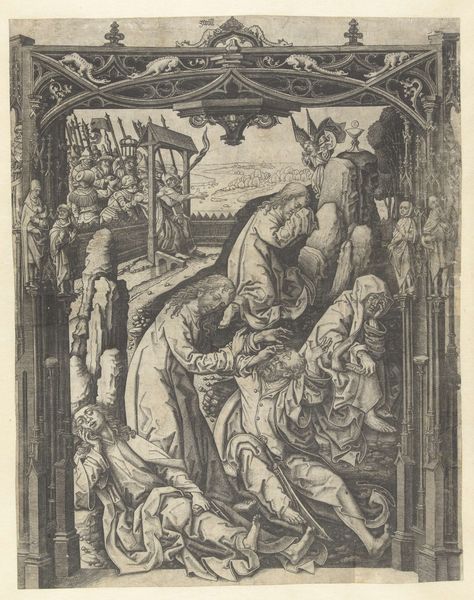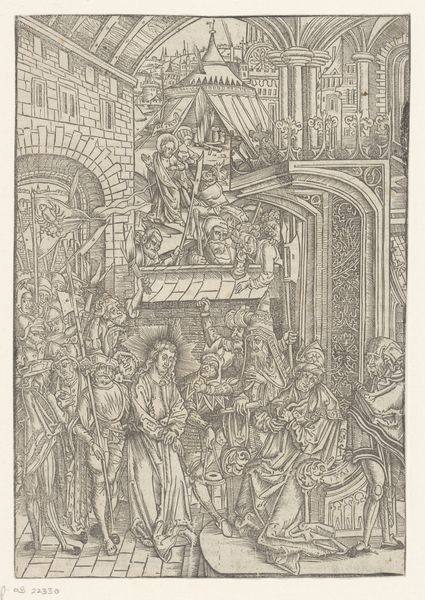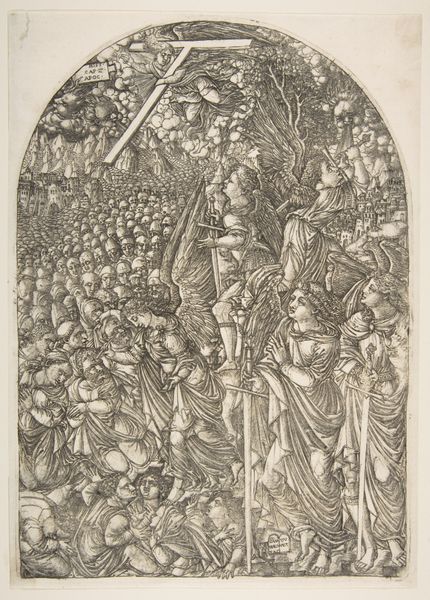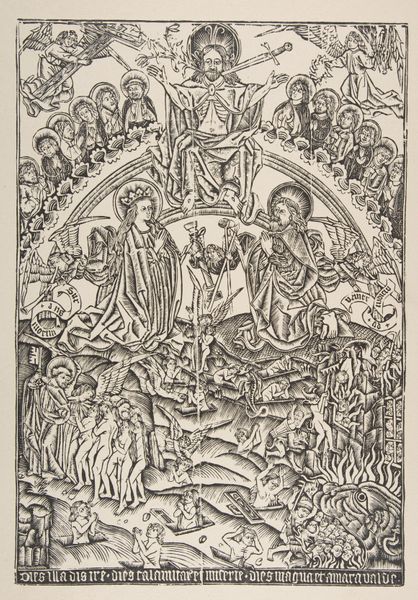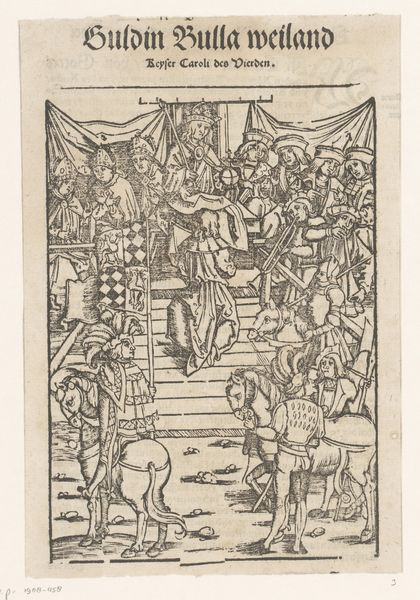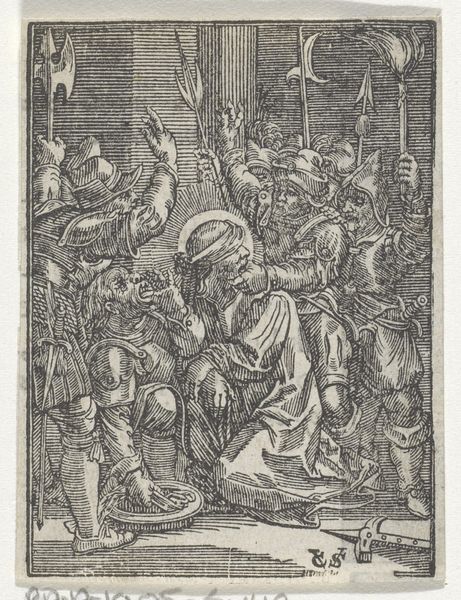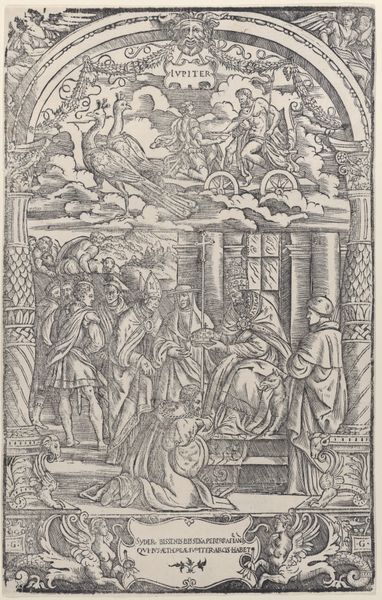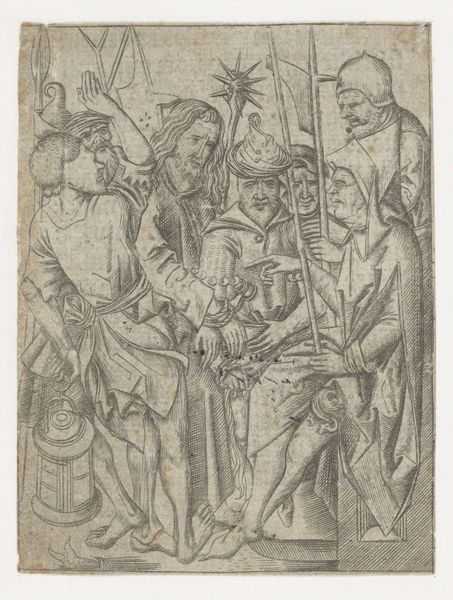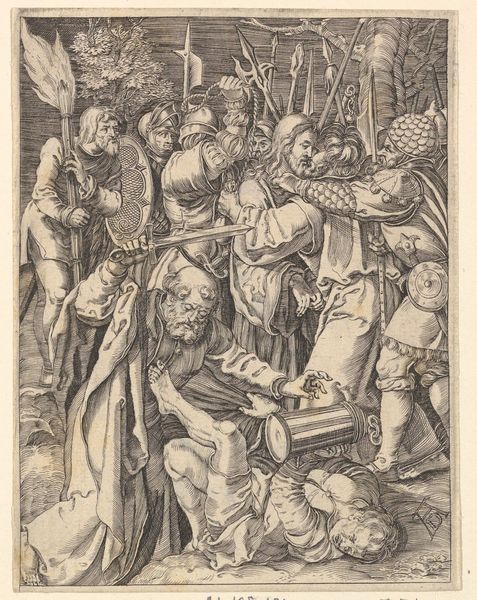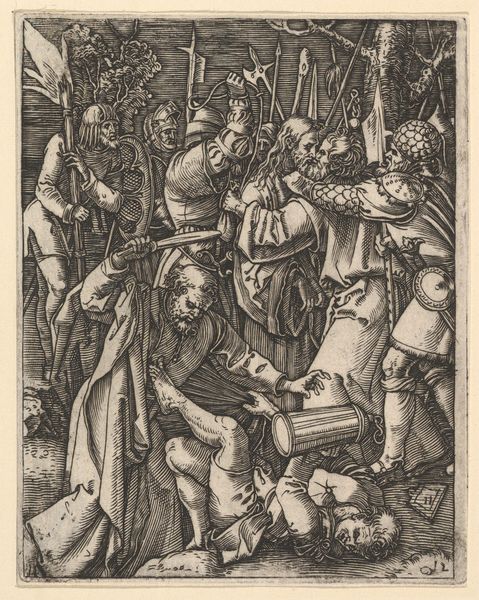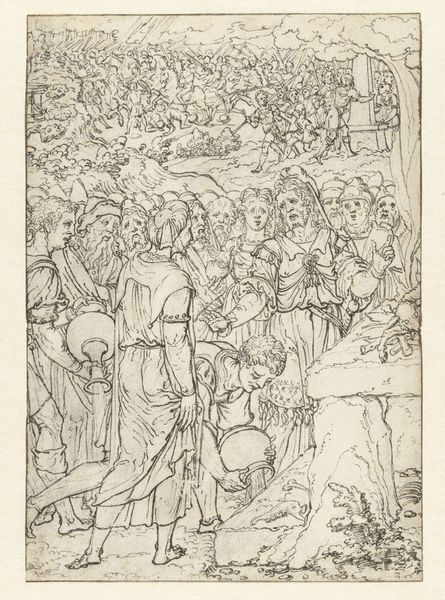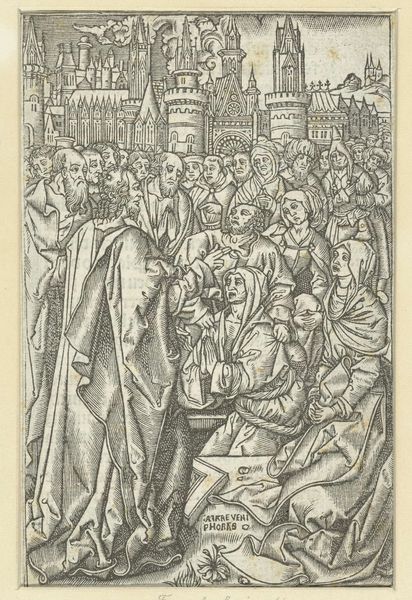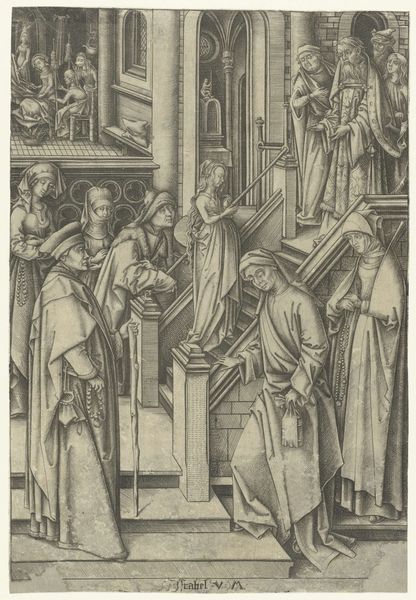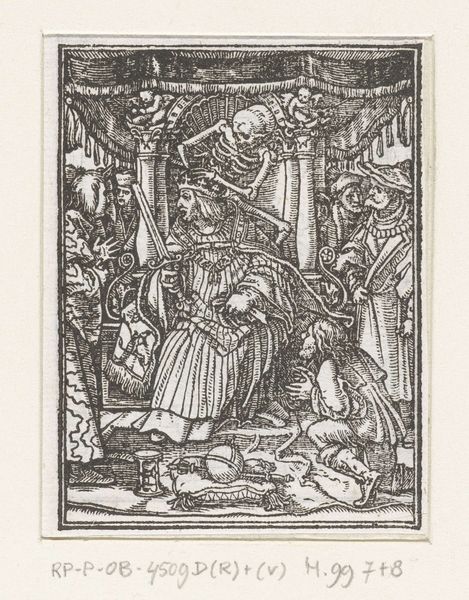
print, woodcut
#
medieval
# print
#
old engraving style
#
figuration
#
woodcut
#
line
#
history-painting
#
northern-renaissance
Dimensions: height 123 mm, width 79 mm
Copyright: Rijks Museum: Open Domain
Curator: Here we have "The Crucifixion," a woodcut dating back to 1507-1508. Editor: It's stark, and overwhelmingly detailed. The sheer density of figures creates a feeling of both claustrophobia and drama. Curator: The anonymous artist's mastery of the woodcut technique is evident. Consider the labor involved in carving such fine lines to achieve such intricate detail. It speaks to a culture steeped in craftsmanship. Editor: The composition is a masterful balancing act. The vertical emphasis, with Christ's body dominating the central axis, is offset by the dynamic groupings of figures on either side, directing our gaze towards the focal point. Curator: And what about the role of this print in society at the time? Woodcuts like this weren't just art objects; they were tools of mass communication. This readily available print enabled even those with very limited resources to own religious iconography and teaching aids. Editor: The medium shapes the message; the hard, black lines emphasize suffering. Curator: Precisely! By using simple materials the anonymous artist crafted a powerful symbol of not only faith but of broader socioeconomic realities. How do you see the symbolic nature represented through material choices? Editor: The intentional design reinforces certain meanings – the textures, patterns of light and dark, contribute significantly. And its effectiveness depends greatly on line to emphasize grief and stoicism on onlookers faces, it is hard to remain untouched. Curator: Absolutely. Looking at the socio-historical factors of this artwork truly enhanced my grasp on this Medieval work! Editor: Indeed. It's fascinating to appreciate how an image can be both a spiritual statement and a testament to the skills and labor of its time.
Comments
No comments
Be the first to comment and join the conversation on the ultimate creative platform.
